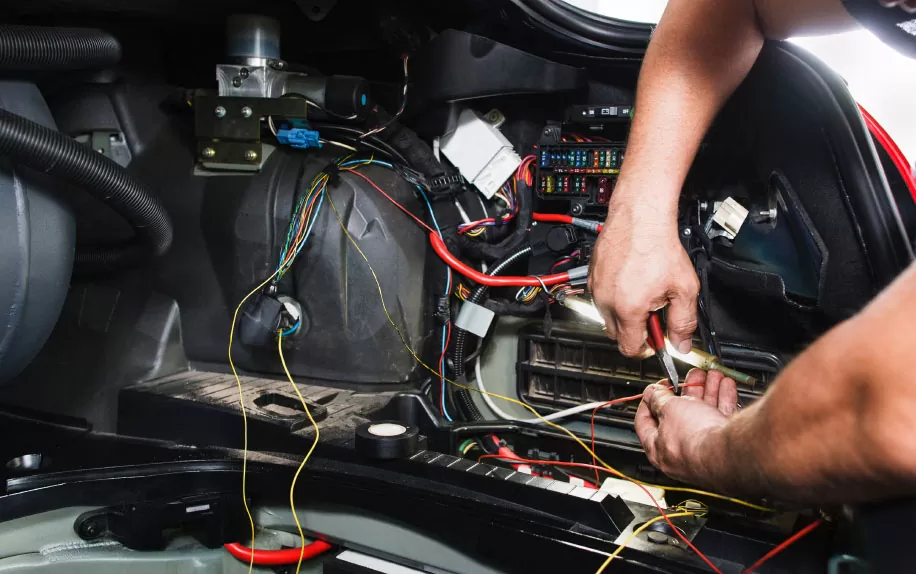
In today’s rapidly advancing automotive industry, the role of electrical systems and technology in vehicles has become increasingly complex. This makes a solid understanding of automotive electrical systems crucial for both aspiring and seasoned automotive technicians. Enrolling in an automotive electrical course is a step towards mastering this vital aspect of vehicle maintenance and repair. Here’s an overview of what such a course typically covers, and why it’s essential for anyone interested in automotive technology.
1. Introduction to Automotive Electrical Systems
An automotive electrical course starts with a foundational understanding of vehicle electrical systems. This includes learning about the various electrical components in modern vehicles, such as batteries, alternators, starters, and ignition systems. Students will gain insights into how these components work together to power a vehicle’s electrical systems and support its overall functionality.
2. Basic Electrical Theory
Before diving into the specifics of automotive applications, students must grasp basic electrical theory. This includes concepts such as Ohm’s Law, which relates voltage, current, and resistance, and Kirchhoff’s Laws, which deal with the conservation of charge and energy in electrical circuits. Understanding these principles is crucial for diagnosing and repairing electrical issues in vehicles.
3. Electrical Circuit Diagnosis and Testing
A significant portion of the course focuses on diagnosing and testing electrical circuits. Students learn to use various diagnostic tools, such as multimeters, oscilloscopes, and circuit testers, to identify and troubleshoot electrical faults. The course also covers the interpretation of electrical schematics and wiring diagrams, which are essential for understanding how different components are interconnected.
4. Wiring and Connections
Proper wiring and connections are fundamental to a vehicle’s electrical system. The course teaches students how to handle and install wiring, ensuring that connections are secure and reliable. Topics include crimping, splicing, and soldering wires, as well as understanding different types of connectors and their applications.
5. Automotive Battery and Charging Systems
One of the key areas in automotive electrical systems is the battery and charging system. Students learn about battery types, charging procedures, and the operation of the alternator. The course covers testing and troubleshooting techniques to ensure that the battery and charging system are functioning correctly and efficiently.
6. Lighting and Accessory Systems
Automotive electrical courses also cover lighting and accessory systems, including headlights, taillights, interior lighting, and power windows. Students learn how to diagnose and repair issues related to these systems, ensuring that they meet safety and functionality standards.
7. Advanced Electrical Systems
As vehicles become more sophisticated, so do their electrical systems. Advanced topics might include electronic control units (ECUs), onboard diagnostics (OBD), and advanced driver-assistance systems (ADAS). Understanding these systems is crucial for modern automotive technicians who need to keep up with the latest technology.
8. Safety Practices
Safety is paramount in automotive electrical work. The course emphasizes safe practices when working with electrical systems, including proper handling of tools, precautions when working with live circuits, and understanding the potential hazards associated with electrical repairs.
9. Hands-On Experience
Practical, hands-on experience is a key component of any automotive electrical course. Students have the opportunity to work on real vehicles, applying theoretical knowledge to practical situations. This hands-on approach helps reinforce learning and builds confidence in diagnosing and repairing electrical issues.
10. Certification and Career Opportunities
Upon completing an automotive electrical course, students often receive certification that can enhance their job prospects. Certifications demonstrate proficiency and can lead to various career opportunities in automotive repair shops, dealerships, and specialized service centers. The knowledge gained from the course provides a solid foundation for pursuing advanced training or specializations within the automotive field.
Conclusion
An automotive electrical course offers essential training for anyone interested in mastering the electrical aspects of vehicle maintenance and repair. From basic electrical theory to advanced diagnostic techniques, the course equips students with the skills needed to succeed in a rapidly evolving industry. Whether you’re starting a career in automotive technology or looking to enhance your existing skills, understanding the fundamentals of automotive electrical systems is a crucial step toward achieving your professional goals.